
Balancing between evolutionary rescue and extinction: The adaptive potential of reef-building corals in a warming world
The adaptive potential of reef-building corals in a warming world
Evolutionary rescue could play a role in the persistence of some coral populations, but this capacity may be insufficient if global warming unfettered.
Essay just out in @science.org summarising my PhD work completed wt. great collaborators at Coralassist & Marine Spatial Ecology Labs + many more.
19.11.2025 10:48 —
👍 2
🔁 0
💬 0
📌 0
You can read about it in the new issue of Science with an Essay I wrote... unless you mean the photo. It's a stunning coral in Palau, where reefs have been lucky to escape significant heatwave mortality for many years now
19.11.2025 08:31 —
👍 0
🔁 0
💬 0
📌 0

In Science Journals
Highlights from the Science family of journals
Delighted to see our paper out in Science Magazine today.
And congrats for the amazing picture James Guest!
www.science.org/doi/10.1126/...
13.12.2024 21:33 —
👍 10
🔁 2
💬 1
📌 0
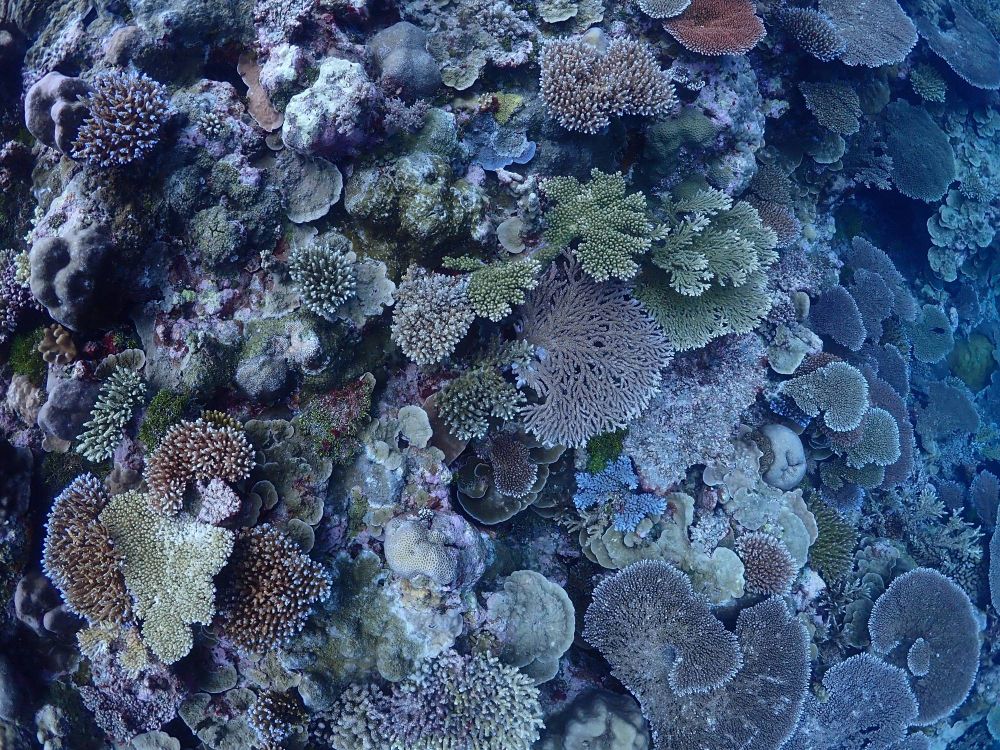
Wednesday in Tulum:
James Guest at 11.30am on a 5- year selective breeding trial
& myself at 12.00pm on natural adaptation and importance of which trait we choose for breeding
08.12.2024 20:37 —
👍 2
🔁 1
💬 0
📌 0
Can we selectively breed Acropora corals for heat tolerance?
Two upcoming Coralassist Lab talks on adaptation & breeding @coralconsortium.bsky.social #ReefFutures
Feasibility & lessons learned from Pacific context building on our 2 new papers:
doi.org/10.1126/scie...
rdcu.be/d2RhM
08.12.2024 20:37 —
👍 4
🔁 1
💬 1
📌 0
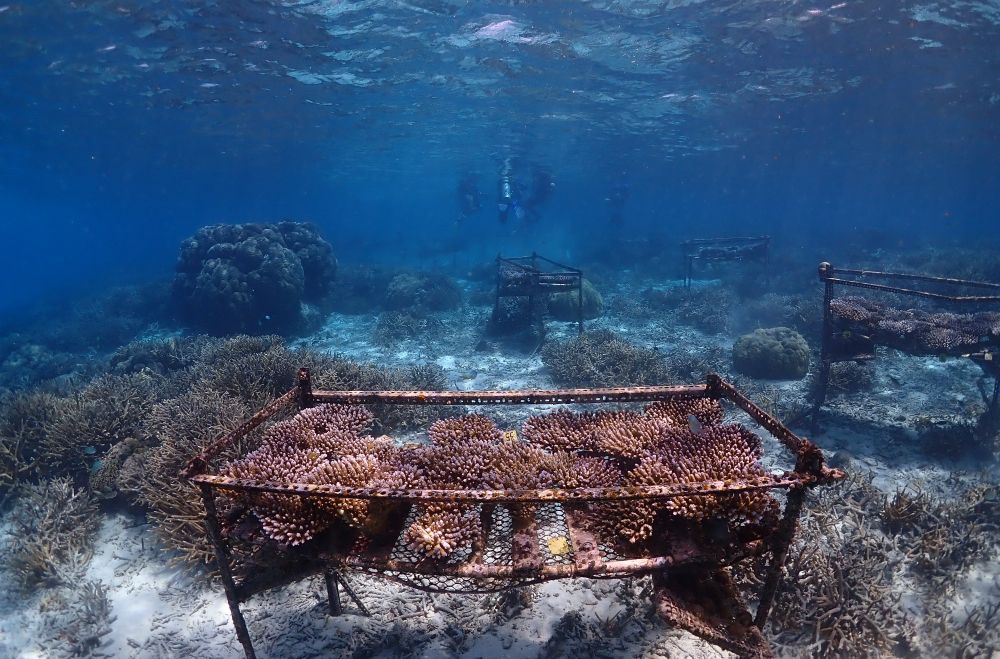
credit: Liam Lachs
Thanks to all the other supportive groups & institutions helping fuel ideas in our field: PICRC AIMS, @newcastleuni.bsky.social Coralassist Lab, University of Queensland, @ubcoceans.bsky.social, Southern Cross Uni
(12/12)
29.11.2024 22:02 —
👍 4
🔁 1
💬 0
📌 0

credit: Liam Lachs
Thanks for supporting this work: @ukri.org NERC, ONEPlanet DTP, ERC Research, Mitacs Canada, @rgsibg.bsky.social @icrs.bsky.social IDEAWILD
& wonderful coauthors: YM Bozec, J Bythell, @simondonner.bsky.social, H East, AJ Edwards, Y Golbuu, M Gouezo, J Guest, A Humanes, C Riginos & P Mumby
(11/12)
29.11.2024 22:02 —
👍 3
🔁 1
💬 1
📌 0

credit: Pete Mumby
Now we must combine this knowledge to support natural adaptation and enhance the heat tolerance of key coral species at local scales for high priority reefs.
(10/12)
29.11.2024 22:02 —
👍 1
🔁 0
💬 1
📌 0

credit: Liam Lachs
Our work is a call to action. If we want healthy reefs we must reduce emissions & manage reefs strategically to promote adaptation potential.
It's also a call away from complacency. Adaptation may well help maintain coral populations if we can deliver on decarbonisation.
(8/12)
29.11.2024 22:02 —
👍 3
🔁 1
💬 1
📌 0

credit: Peter Mumby
If we abandon the cause for climate action & global temperatures rise by ~5°C, Acropora corals in our model disappear.
This holds true even for an upper limit of adaptive potential, where heat tolerance is 100% genetically determined & inherited perfectly.
(7/12)
29.11.2024 22:02 —
👍 3
🔁 1
💬 1
📌 0

credit: Liam Lachs
Given current climate policies (which are lagging behind Paris commitments), we're on track for a ~3°C warmer world.
Including adaptation in our model can make the difference between Acropora corals being lost vs. persisting, albeit with a potential loss of reef function
(6/12)
29.11.2024 22:02 —
👍 2
🔁 0
💬 1
📌 0

credit photo: Peter Mumby, graph: Liam Lachs
No matter our actions on reducing emissions, Acropora corals are expected to decline over the coming decades.
But if we can achieve Paris Agreement commitments and limit warming to 2°C, then natural selection could allow Acropora populations to thrive beyond 2050.
(5/12)
29.11.2024 22:02 —
👍 4
🔁 1
💬 1
📌 0

credit: Liam Lachs
Marine heatwaves and resulting mass coral bleaching & mortality events remain the single biggest threat to coral reefs globally.
We set out to test whether coral adaptation via natural selection could occur fast enough to keep pace with ocean warming.
(3/12)
29.11.2024 22:02 —
👍 6
🔁 3
💬 1
📌 0
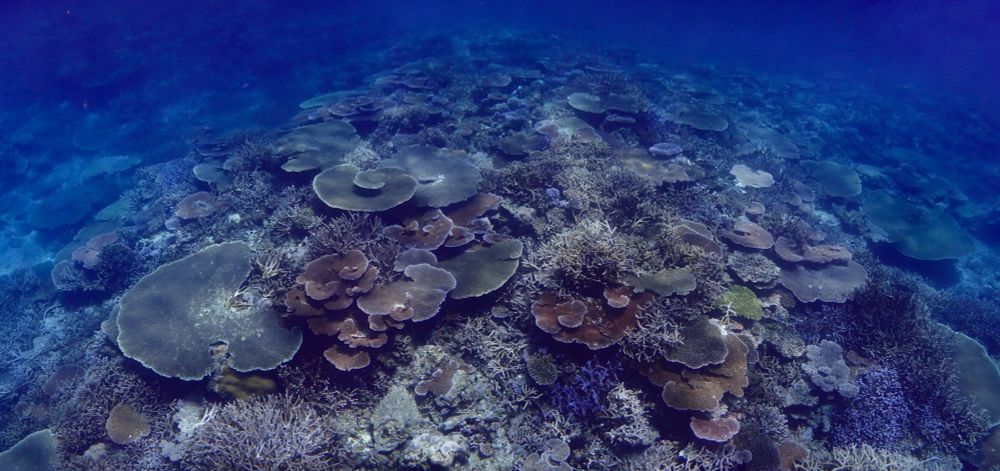
credit: Liam Lachs
📢New Paper Alert📢
on corals and climate change in Science
Adaptation via natural selection could determine whether Acropora corals persist under expected levels of global warming
Hyperlinks & explainer thread below ⬇️
(1/12)
29.11.2024 22:02 —
👍 85
🔁 40
💬 2
📌 1
If we can make it to the top of that sand mountain then we can do anything!
29.11.2024 05:00 —
👍 1
🔁 0
💬 0
📌 0

Just finished a deep dive into detecting historic shifts in coral thermal tolerance with @annacresswell.bsky.social! Felt like we had a mountain to climb, but lots of great new ideas coming now. Thanks to support from @eseb.bsky.social AIMS James Gilmour, James Guest & many more!
27.11.2024 09:26 —
👍 9
🔁 3
💬 1
📌 0

High coral heat tolerance at local-scale thermal refugia
Marine heatwaves and mass bleaching have devastated coral populations globally, yet bleaching severity often varies among reefs. To what extent a reef’s past exposure to heat stress influences coral b...
Building on the great work of PICRC in Palau
and published in PLOS Climate, the paper explores how heat-mediated mass bleaching and the heat tolerance of a focal coral species vary across reefs that have contrasting historical exposure to marine heatwaves.
journals.plos.org/climate/arti...
18.11.2024 13:52 —
👍 1
🔁 0
💬 0
📌 0
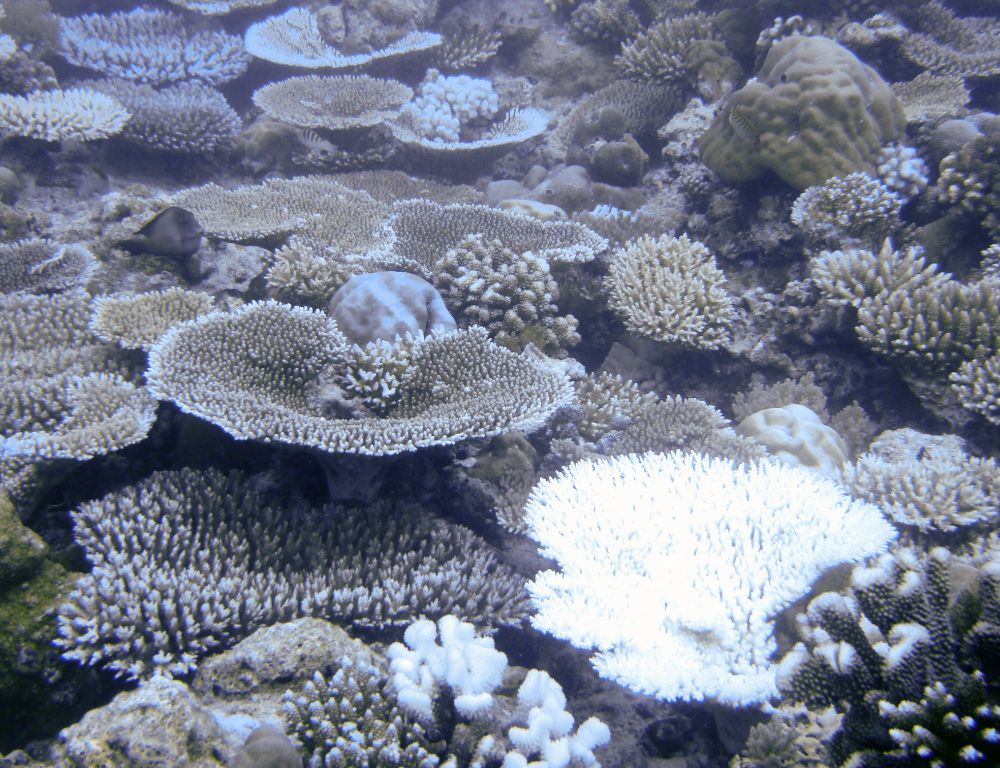
Thanks to Amanda Bates for her thoughts on how the recent paper from my PhD at the Coralassist Lab (on the variability of coral heat tolerance among reefs) contributes to thermal biology and conservation more broadly.
doi.org/10.1016/j.tr...
18.11.2024 13:51 —
👍 3
🔁 1
💬 1
📌 0
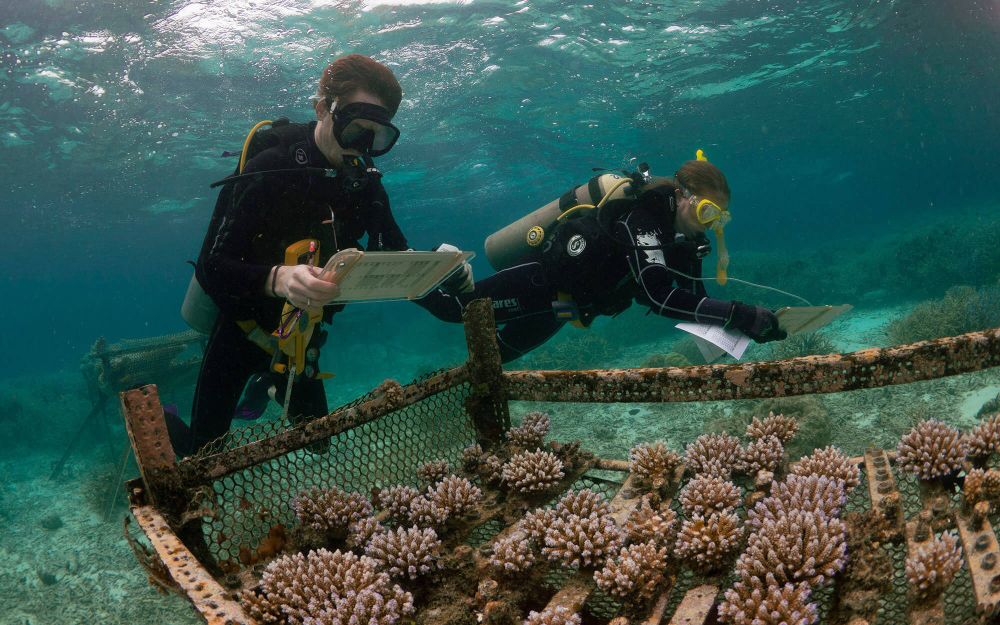
Paper was led by Adriana Humanes, Liam Lachs & James Guest
Part of the fruitful Coralassist Lab - PICRC collaboration, with support from the Horniman Museum, Uni. Of Exeter, Derby Uni. & Uni. Victoria
Funded by ERC, with support from UKRI / NERC
(9/9)
14.10.2024 10:29 —
👍 3
🔁 1
💬 0
📌 0
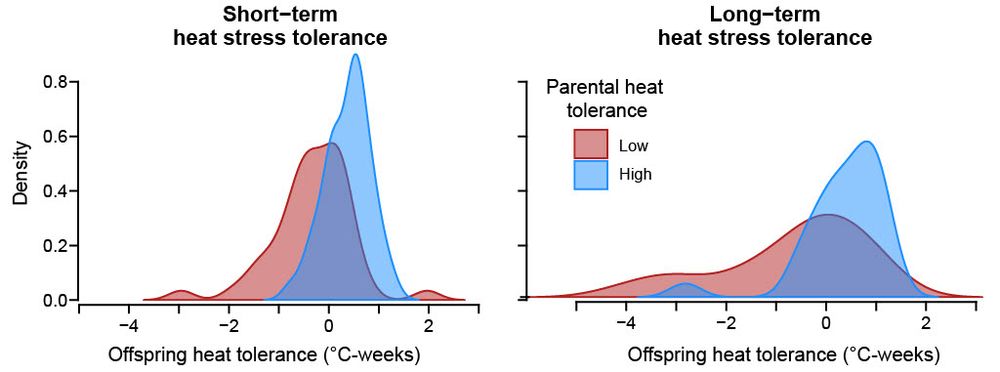
Our study shows selective breeding is feasible, yet potential heat tolerance gains are modest compared to expected future warming.
R&D is needed to optimise breeding interventions and maximise positive impacts.
Ultimately, reefs still depend on rapid reductions in greenhouse gas emissions.
(8/9)
14.10.2024 10:28 —
👍 3
🔁 2
💬 1
📌 0
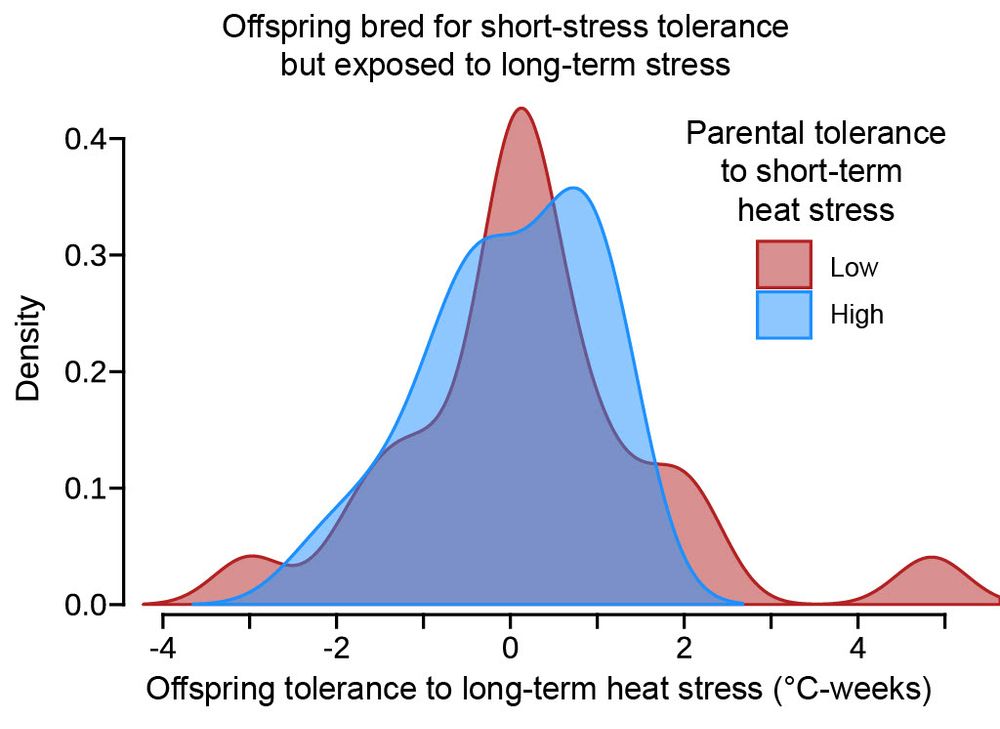
Offspring bred for short-stress tolerance did not show evidence of enhanced tolerance to the long-term stress that more closely emulates marine heatwaves.
To maximise coral fitness in the face of climate change, care will be needed when selecting which traits to breed for.
(7/9)
14.10.2024 10:28 —
👍 2
🔁 1
💬 1
📌 0
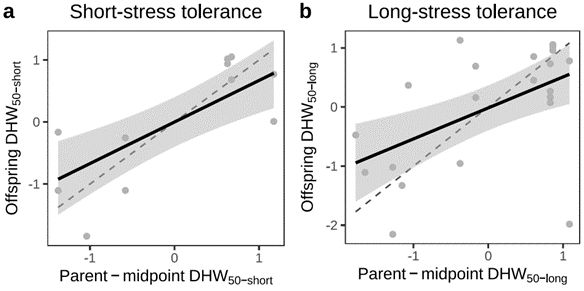
Nature vs. Nurture:
The heritability of heat tolerance traits was ~0.2-0.3.
This means these traits have a substantial genetic basis but are also heavily influenced by other non-genetic factors.
(6/9)
14.10.2024 10:28 —
👍 2
🔁 1
💬 1
📌 0
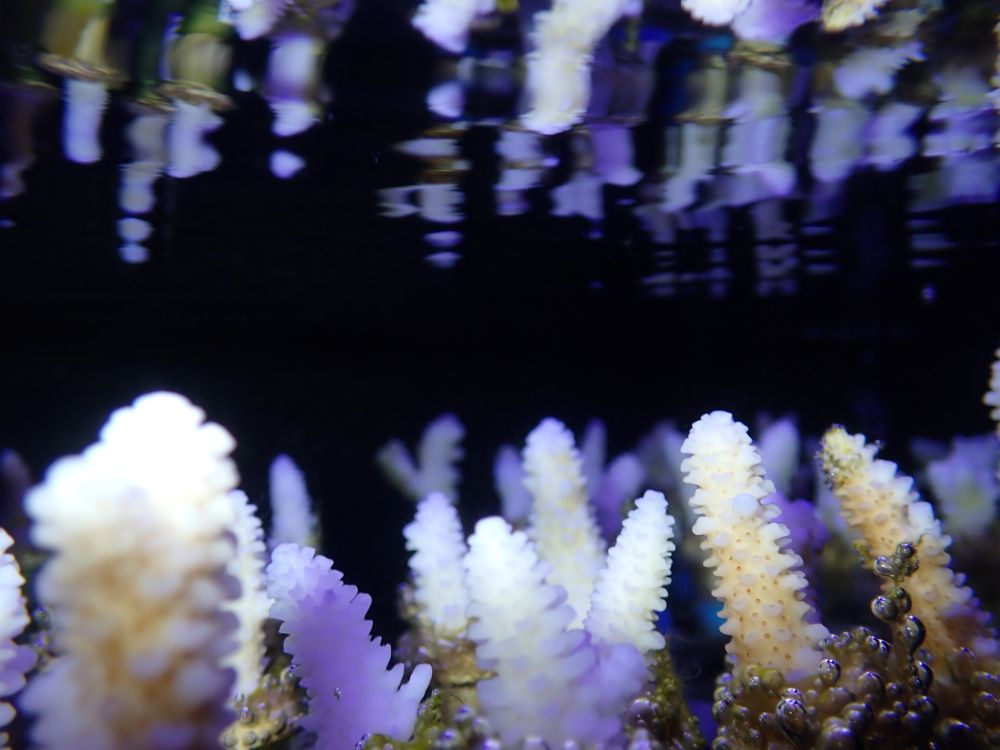
Offspring whose parents had high (rather than low) heat tolerance showed an enhanced ability to withstand the type of heat stress for which they were bred.
They can withstand the heat stress for a longer duration before the onset of bleaching and mortality.
(5/9)
14.10.2024 10:26 —
👍 2
🔁 1
💬 1
📌 0
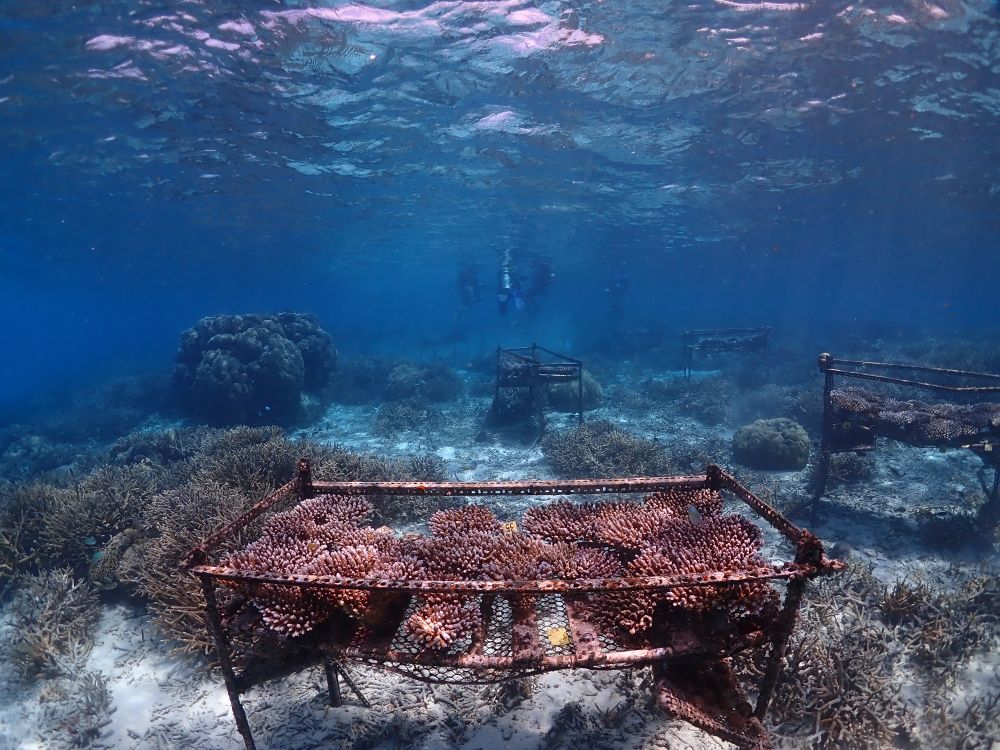
Then offspring were reared in an ocean nursery until they reached reproductive maturity themselves at 3-4 years old.
At this stage, the offspring were exposed to the same heat stress tests that were used years before to select their parents.
(4/9)
14.10.2024 10:26 —
👍 2
🔁 1
💬 1
📌 0
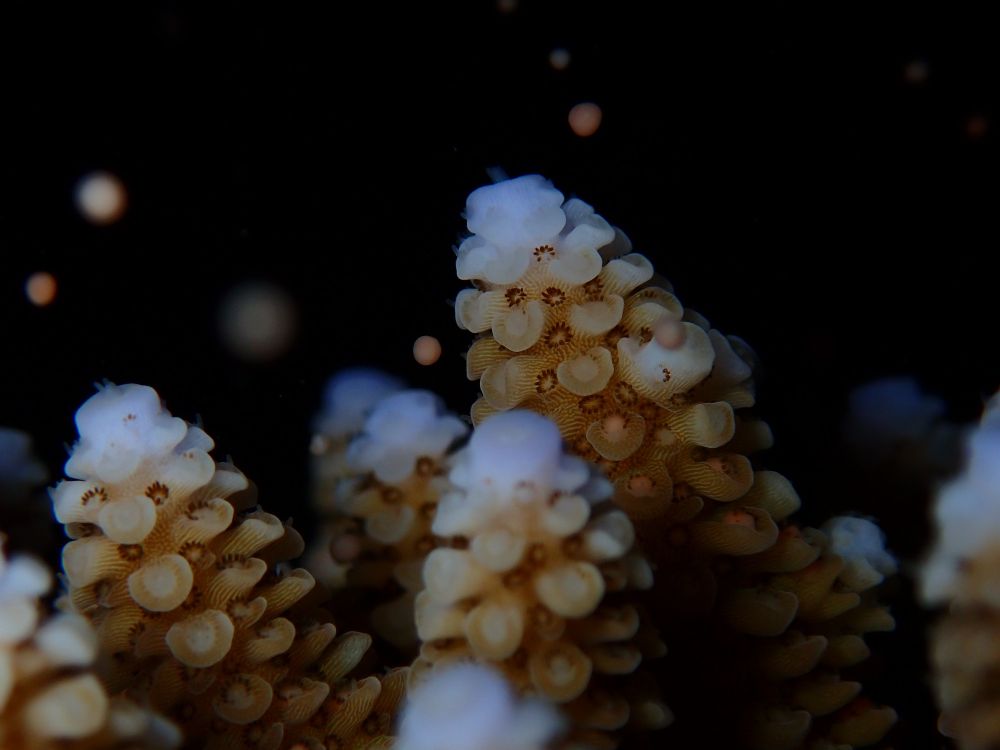
Selective breeding was conducted for the bleaching survival response of wild corals to both:
- a short-term ~1-week +3.5 °C heat stress
- long-term ~1-month +2.5 °C heat stress
(3/9)
14.10.2024 10:25 —
👍 2
🔁 1
💬 1
📌 0
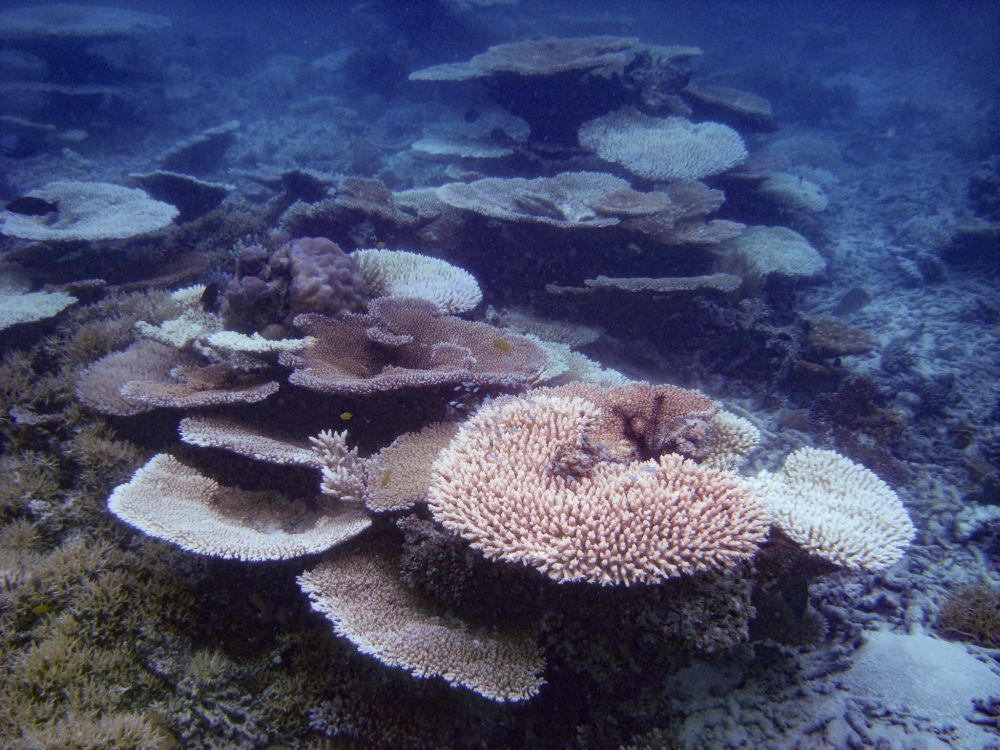
Photo credit: Rob van Woesik
Marine heatwaves are triggering mass coral bleaching & mortality events.
Whether corals can adapt fast enough remains uncertain, leading to calls for assisted evolution.
Since 2017, the Coralassist Lab & PICRC Palau have been testing whether selective breeding is a feasible option.
(2/9)
14.10.2024 10:24 —
👍 2
🔁 1
💬 1
📌 0
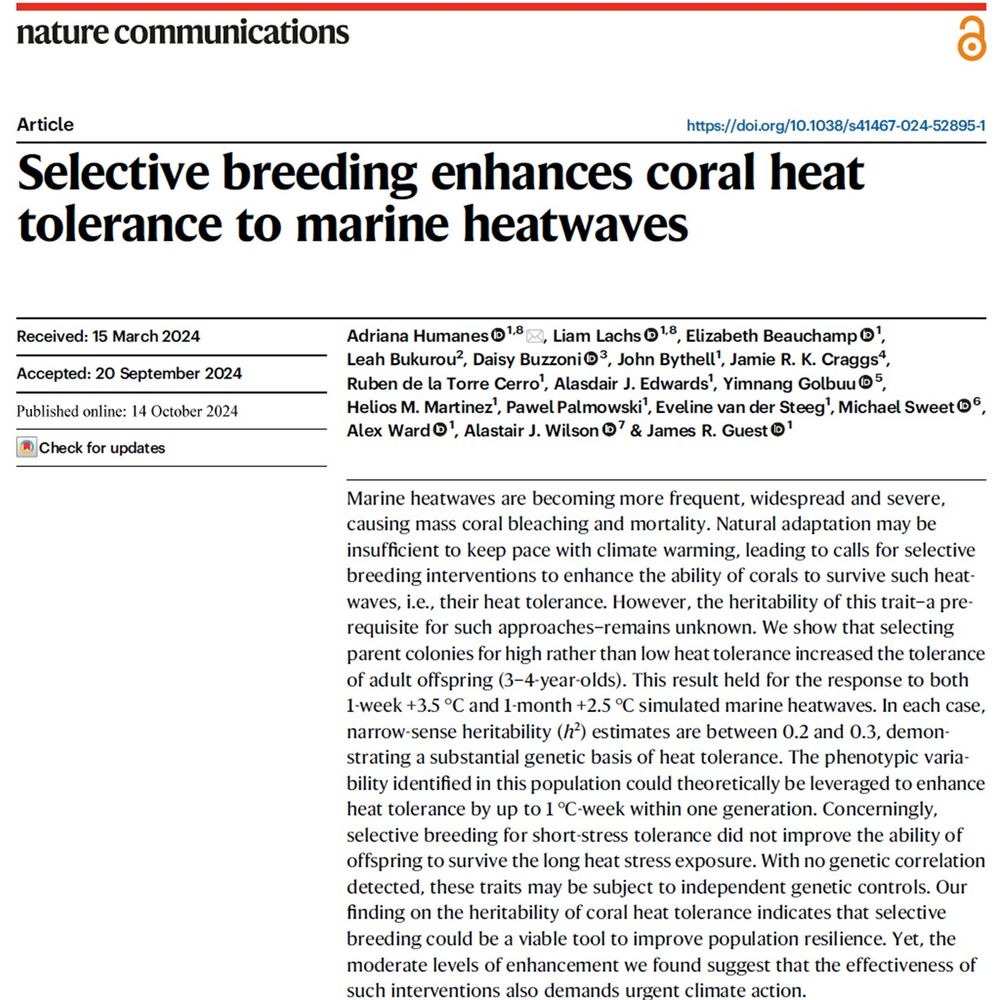
📢New Paper Alert📢
Selective breeding enhances tolerance of corals to marine heatwaves
Take-home messages:
- Breeding corals for heat tolerance is feasible
- R&D is now needed to optimise outcomes
- Not a silver bullet solution
- We still need rapid climate action
bit.ly/4h0Tc0P
(1/9)
14.10.2024 10:23 —
👍 7
🔁 3
💬 1
📌 0

Nice press release on our recent paper on demographic recovery of corals after catastrophic disturbance over a decade ago in Palau. Result of a fruitful collaboration between PICRC and the Coralassist Lab!
picrc.org/new-picrc-st...
26.02.2024 19:27 —
👍 2
🔁 0
💬 0
📌 0

























